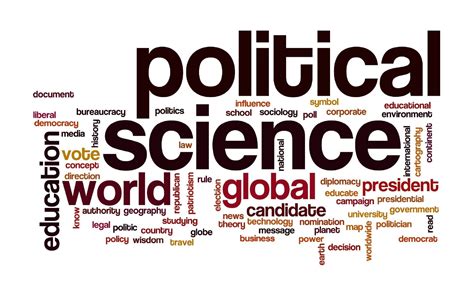A bachelor’s degree in political science provides a solid foundation in the study of government, politics, and public policy. Graduates develop critical thinking, analytical, and communication skills that are highly valued in various fields. This comprehensive guide explores the vast array of career opportunities available to individuals with a bachelor’s in political science.

Government and Public Sector
1. Civil Service:
– Serve as administrators, policy analysts, or program managers in government agencies at the local, state, and federal levels.
– Focus on implementing public programs, policies, and regulations.
2. Foreign Service:
– Represent the United States abroad as diplomats or consular officers.
– Engage in international affairs, diplomacy, and trade promotion.
3. Law Enforcement:
– Work as police officers, detectives, or federal agents.
– Enforce laws, investigate crimes, and maintain public safety.
4. Public Administration:
– Manage and provide services in public organizations, such as city governments, non-profit organizations, and special districts.
– Oversee budgets, human resources, and policy implementation.
5. Public Policy Analyst:
– Research, analyze, and develop public policies for government agencies or think tanks.
– Provide evidence-based recommendations to inform decision-making.
Business and Industry
1. Government Relations:
– Represent companies and organizations before government agencies to advocate for their interests and influence public policy.
– Build relationships with policymakers and stakeholders.
2. Political Risk Analysis:
– Assess political and security risks that may impact businesses operating in different countries or regions.
– Provide guidance and recommendations to mitigate risk and optimize decision-making.
3. Public Affairs:
– Manage communications, public relations, and outreach activities for corporations, non-profit organizations, or political campaigns.
– Build and maintain positive relationships with stakeholders and the public.
4. Consulting:
– Provide expert advice to companies and governments on political strategy, public policy, and risk management.
– Conduct research, analyze data, and develop recommendations.
5. Corporate Social Responsibility:
– Develop and implement corporate social responsibility programs that align with the company’s values and mission.
– Engage with stakeholders to address social and environmental issues.
Non-Profit Organizations and Advocacy Groups
1. Policy Analyst:
– Research, analyze, and advocate for public policies that reflect the organization’s mission.
– Provide expert testimony, write policy briefs, and engage with policymakers.
2. Program Manager:
– Design, implement, and evaluate social programs aimed at addressing specific issues, such as education, poverty, or health.
– Work with community partners and stakeholders to ensure program success.
3. Advocacy Manager:
– Lead advocacy campaigns to influence public policy and raise awareness about important issues.
– Mobilize supporters and engage with policymakers.
4. Grant Writer:
– Write grant proposals to secure funding for non-profit organizations and advocacy groups.
– Develop compelling narratives and demonstrate the impact of the proposed projects.
5. Community Organizer:
– Engage with community members to identify needs and mobilize them to advocate for change.
– Build coalitions and partnerships to achieve social justice goals.
Education and Research
1. College Professor:
– Teach political science courses at colleges and universities.
– Conduct research, publish scholarly articles, and mentor students.
2. Research Analyst:
– Conduct political research for think tanks, government agencies, or non-profit organizations.
– Analyze data, develop methodologies, and write reports on political trends and issues.
3. Librarian:
– Manage and organize political science collections in libraries.
– Provide research assistance to students, faculty, and the general public.
4. Archivist:
– Preserve and catalog historical documents and records related to political science.
– Provide access to valuable archival materials for researchers and historians.
5. Political Scientist:
– Conduct independent research and write scholarly publications on political theory, comparative politics, or international relations.
– Present findings at conferences and engage with the academic community.
Conclusion
A bachelor’s degree in political science opens up a broad range of career opportunities in government, business, non-profits, education, and research. Graduates with a strong understanding of political systems, public policy, and analytical methods are well-equipped to make a meaningful impact in various sectors. By leveraging their critical thinking, communication, and problem-solving skills, individuals with this degree can contribute to the functioning of society, advocate for social justice, and shape the future of the political landscape.
